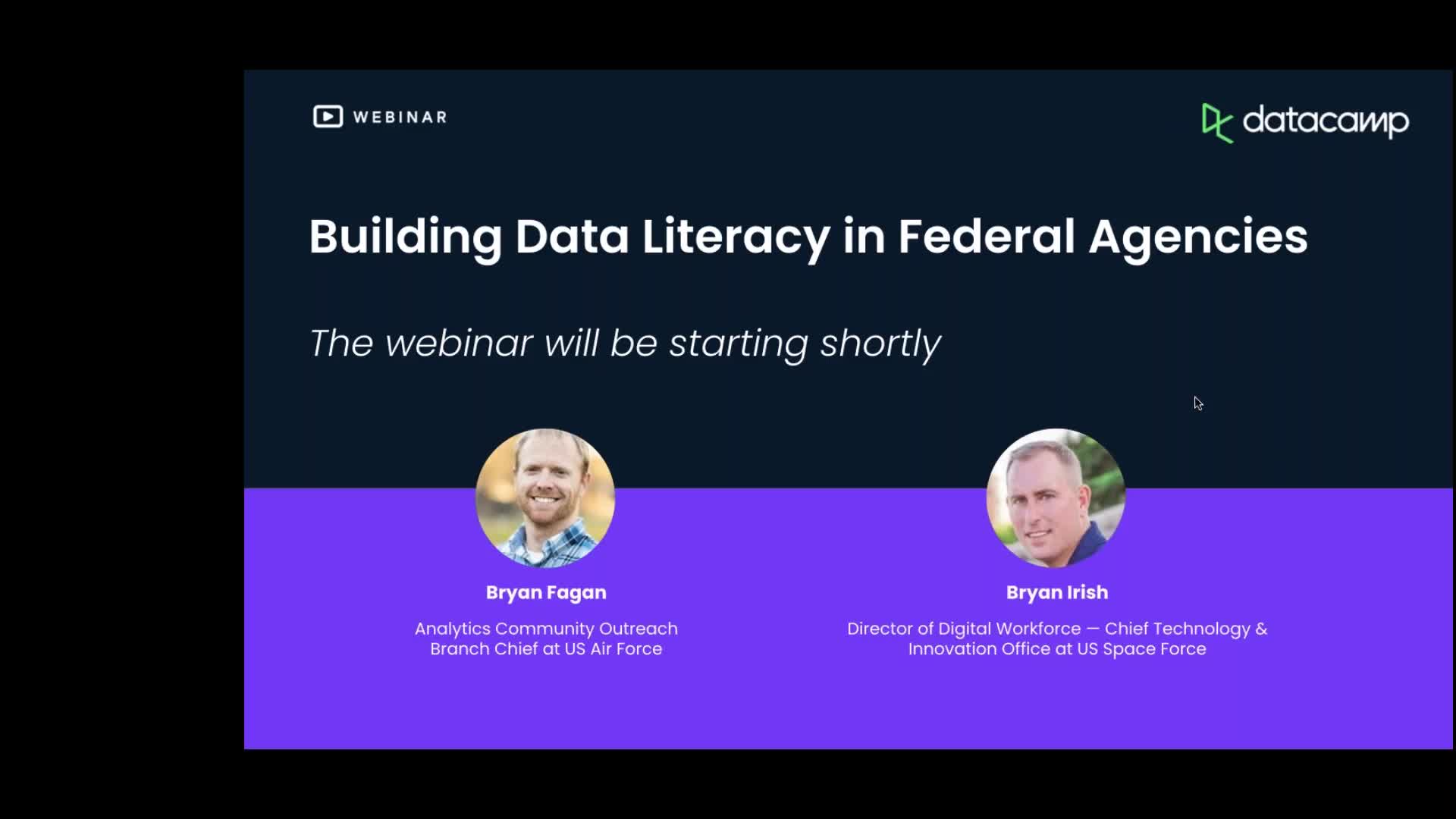Pular para o conteúdo principalSaiba Mais





Falantes


Bryan Fagan
Chief - Community Outreach Branch, United States Air Force - Analytics Community

Bryan Irish
Director of Digital Workforce — Chief Technology & Innovation Office, United States Space Force
Treinar 2 ou mais pessoas?
Obtenha acesso à biblioteca completa do DataCamp, com relatórios, atribuições, projetos e muito mais centralizadosRelacionado
white paper
The L&D Guide to Data Literacy
Find the appropriate distribution of data skills across your organization.webinar
Building Data Literacy with DataCamp
Learn about DataCamp’s revised data literacy curriculum.webinar
Building Data Fluency in an Organization
Dive into the value of data fluency in an organization and how to achieve it.webinar
CDO Panel—The Critical Task of Building Data Culture
In-depth discussion on the critical importance of building data cultures.webinar
Democratizing Data in Government Agencies
Get specific, actionable best practices for data democratization in government.webinar
Data Literacy in the 21st Century
Get the low-down on what it takes to be data-literate today.Join 5000+ companies and 80% of the Fortune 1000 who use DataCamp to upskill their teams.
Loved by thousands of companies
